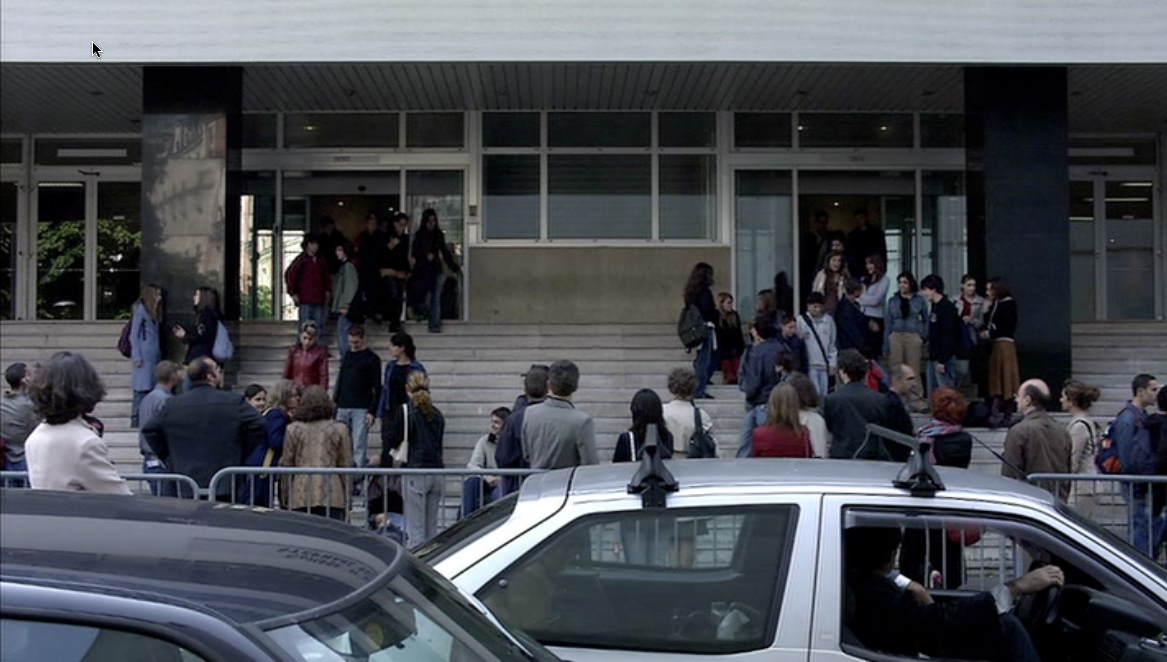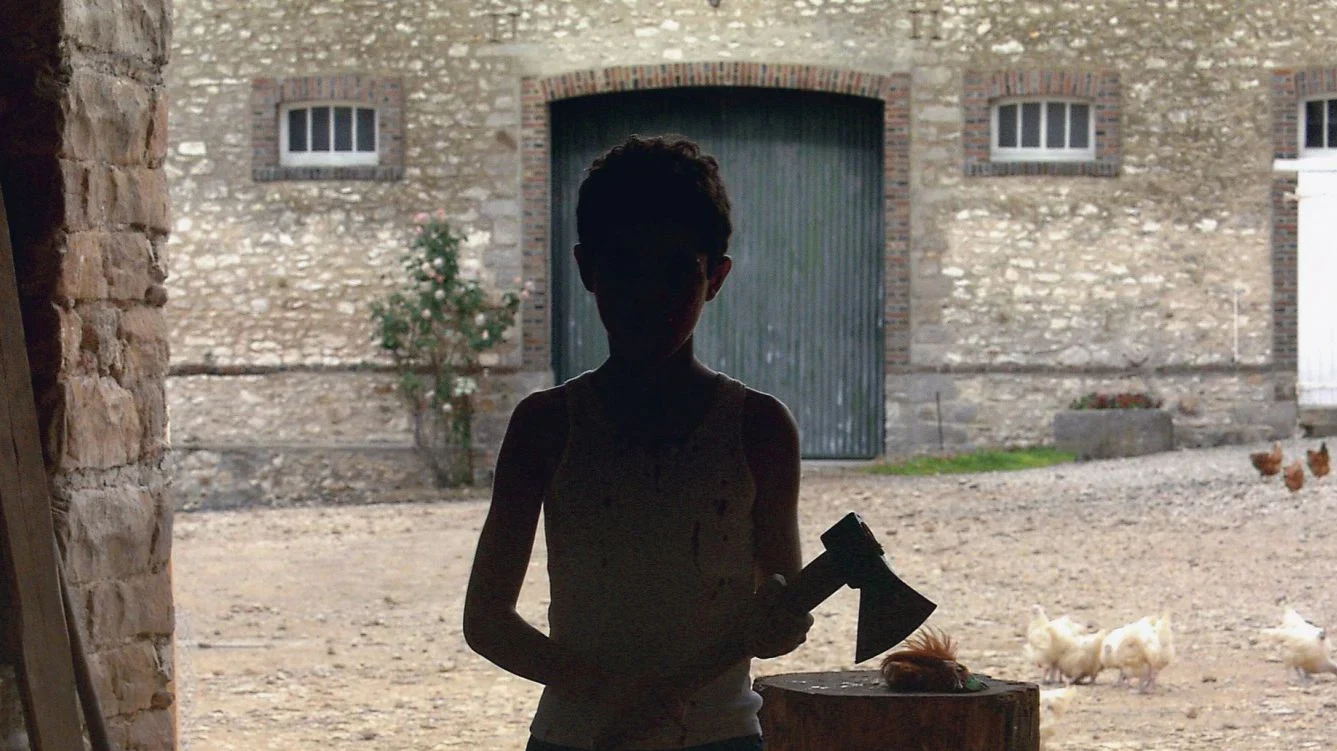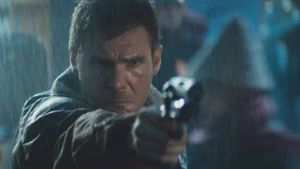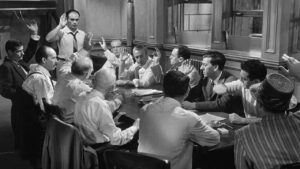Table of Contents
Introduction: The Uneasy Tension of Cache
In a world increasingly dominated by surveillance and hidden agendas, Cache emerges as a powerful exploration of guilt, paranoia, and identity. Directed by Michael Haneke, this film challenges viewers to confront the uncomfortable truths that lie beneath the surface of seemingly ordinary lives.
Through its haunting narrative, Cache explained reveals how trauma can shape individual psyches and relationships. The film invites a critical examination of modern society, where the act of watching and being watched becomes a source of anxiety. As we delve into its psychological intricacies and philosophical implications, we uncover a labyrinth of emotions and moral ambiguities that resonate with our contemporary realities.
Prepare to unravel the haunting depths of this cinematic masterpiece, where every frame holds a deeper significance and where the past eerily intertwines with the present.
The Weight of Guilt: Psychological Ramifications in Cache
Guilt as a Catalyst
In Cache, the theme of guilt acts as a powerful catalyst, driving the characters towards a psychological confrontation they cannot evade. Georges, the protagonist, experiences guilt stemming from a secret buried in his past. This psychological burden manifests itself in the form of surveillance tapes that appear on his doorstep, representing both an external threat and a reflection of his internal turmoil.
The psychological ramifications of guilt highlighted in the film delve into the complexities of self-deception. As Georges attempts to rationalize the implications of his past, he becomes increasingly paranoid. The tapes not only threaten his present-day tranquility but also force him to grapple with memories he would prefer to forget. This complex interplay reveals how guilt can disrupt one’s psyche, leading to a compulsion to resolve or confront unresolved issues.

The Echoes of the Past
Philosophically, Cache poses questions about the burden of memory and how it shapes identity. Georges’s past actions haunt him, serving as a reminder that guilt is not always a one-time event but can echo throughout one’s life. This persistent reminder leads to a deep-seated anxiety that affects not only his mental state but also his relationships with others, particularly his wife, Anne.
As the narrative unfolds, viewers witness the destructive power of guilt, which manifests in various ways. Georges’s attempts to distance himself from his past ultimately lead to an unraveling of his present, exposing the fragility of his moral standing. The psychological ramifications of his guilt are not confined to his mind; they seep into his interactions, causing rifts and fostering mistrust.
Confronting the Unconfronted
The film escalates as Georges is thrust into a confrontation with the implications of his past. His gradual unraveling reveals an intrinsic truth: that unresolved guilt festers and ultimately demands acknowledgment. The psychological weight he carries transforms from a personal struggle into a broader commentary on societal moral failings.
The pivotal moment for Georges comes when he can no longer escape the consequences of his past actions. The tension culminates as he stands at a crossroads, forced to confront the lingering shadows of guilt that have defined his life. This confrontation challenges the audience to consider the complexities of psychological guilt—how it shapes not just personal narrative but societal discourse.
Surveillance and Paranoia: Philosophical Reflections on Modern Life
The Gaze of the Observer
In Cache, the act of surveillance becomes a fundamental aspect of the narrative, intertwining with the psychological dimensions of the characters’ lives. This theme resonates deeply with contemporary society, where omnipresent surveillance technologies provoke a sense of vulnerability and anxiety. Watching and being watched creates a complex web of interactions that challenge our notions of privacy and autonomy.
The unsettling nature of this observation is exacerbated by the anonymity of the observer. In the film, the mysterious recordings serve as a reminder that our actions may be scrutinized without our awareness. This notion invites philosophical inquiry into the ethics of surveillance. How do we reconcile the need for security with the imperative for individual freedom? Such questions echo in the very structure of modern life, where cameras line the streets and data collection is ubiquitous.

Paranoia and Existential Reflection
Paranoia, as depicted in Cache, evolves from the act of surveillance; it becomes an internalized fear that manifests in the characters’ psyche. Georges, tormented by his past, illustrates how guilt can transform into a paranoia that distorts reality. The film compels viewers to confront the relationship between memory, guilt, and identity—key components of existential philosophy.
This psychological turmoil reflects a broader modern malaise, where individuals grapple with their roles within an increasingly monitored society. Such existential dread is accentuated by the idea that every action is not just a personal choice but subject to collective judgment. The fear of exposure highlights the fragility of human relationships and the struggle for authenticity in today’s world.
The Digital Age Dilemma
With the rise of digital surveillance, the themes explored in Cache take on a new immediacy. Social media platforms create an environment where users voluntarily expose their lives, yet this self-disclosure paradoxically breeds feelings of paranoia. The fear of being misinterpreted or exploited looms large.
In this digital landscape, the existential questions surrounding identity and perception become even more pronounced. How do we navigate a world where our images can be manipulated and our words recontextualized? Surveillance in the digital age shifts from external observation to self-surveillance, where individuals constantly curate their identities under the watchful eye of a society that demands visibility.
The Concept of the Other: Identity and Alienation in Cache
The Other as a Mirror
In Cache, the notion of “the Other” plays a pivotal role in unraveling the psychological layers of identity and alienation. The film cleverly uses surveillance as a means of confronting its characters with their own reflections, instigating a profound sense of dislocation. Georges, the protagonist, is faced with videos depicting his past transgressions, which forces him to reckon with the ghosts of his long-buried secrets. This visual intrusion is not merely an invasion of privacy; it represents the way we are often confronted with fragmented pieces of our identity through the eyes of others.
The unease generated by these tapes acts as a catalyst for self-examination. The characters are compelled to confront the uncomfortable truths they have long avoided. In this film, the surveillance camera becomes a tool that reveals more about the observer than the observed, highlighting the inherent complexity of human relationships. Each character is forced to grapple with a version of themselves that they would rather ignore, illuminating the darker corners of their psyches.

Alienation in Everyday Life
The theme of alienation in Cache extends beyond individual characters and into the collective experience of society. The film examines how our contemporary lives, particularly in urban settings, are filled with an overwhelming sense of isolation despite the constant presence of others. Characters move through their daily routines like strangers, often interacting with one another as if they are mere projections of their own unresolved conflicts. This experience echoes through the gaps in communication and understanding, creating an atmosphere thick with tension.
Georges, while seemingly integrated into his environment, is distinctly alienated from his family and society. His responses to the mysterious tapes push him further away from those he loves, creating a chasm that mirrors the cultural detachment present in modern life. This alienation serves to highlight how the presence of “the Other” can simultaneously connect and isolate us, a duality that the film masterfully illustrates.
The Politics of Gaze
The political dimensions of the gaze in Cache also underscore the complex nature of identity and alienation. The act of viewing is imbued with power, and the film prompts the audience to question who holds that power. When Georges is made to view his own life through the lens of an unseen observer, it becomes apparent how our identities are shaped, reinforced, or even distorted by the perceptions of others.
This dynamic raises critical questions about guilt, responsibility, and the often-uncomfortable truths that define our existence. The viewer is not merely a passive observer of the unfolding drama but is invited to engage with the concepts of morality and ethicality inherent in the act of watching. As we dissect the layers of trust and betrayal among the characters, we also reflect on how we define ourselves through our relationships with others and the societal structures that frame our existence.
Visual Storytelling: Techniques that Amplify Tension and Ambiguity
The Power of Framing
In Cache, director Michael Haneke employs meticulous framing to manipulate viewer perception and infuse scenes with a sense of discomfort. The deliberate placement of characters within the frame often serves to isolate them, creating a visual metaphor for their emotional and psychological states. This distancing effect fosters a tension that permeates the film, as characters appear ensnared in a web of surveillance and secrets.
The camera often remains still for extended periods, contrasting with the rapid pace of the plot. This technique amplifies the anxiety of the audience, drawing them into the uncertainty of the characters’ experiences. In a haunting scene where Georges watches a video of his family, the extended silence coupled with tight framing evokes a sense of voyeurism that reflects the underlying themes of guilt and paranoia. This method not only heightens tension but also enhances the ambiguity that lingers throughout the film.

Use of Color and Lighting
Haneke’s choice of color and lighting further deepens the psychological layers of Cache. The muted palette creates an air of bleakness, mirroring the emotional desolation experienced by the characters. Shadows play a crucial role in this cinematic landscape, often obscuring elements of the scene and inviting viewers to confront their own interpretations of fear and anxiety.
The strategic use of light—whether it casts a harsh glare or shrouds a scene in darkness—serves to heighten emotional stakes. For instance, moments of confrontation often unfold in brightly lit spaces, starkly illuminating the characters’ moral quandaries. In contrast, areas of tranquility are often draped in soft shadows, inviting a sense of false security. This interplay of light and dark accentuates the film’s themes of surveillance and introspection, encouraging viewers to question what lies beneath the surface.
Long Takes and Stillness
One of Haneke’s most striking techniques in Cache is his use of long takes. The camera remains fixed on a scene, allowing tension to build gradually as viewers are invited to absorb every nuance. This approach fosters a lingering sense of unease, as the viewer is often left to navigate their own interpretations of the unfolding drama.
In key moments, scenes transition from seemingly mundane to intensely charged, with the camera never rushing to resolve the tension. The stillness of these moments compels the audience to confront their own discomfort and anxieties, aligning with the film’s overarching themes of guilt and complicity. This technique ensures that Cache remains a thought-provoking experience, urging audiences to grapple with the ambiguous moral landscapes presented throughout the narrative.

Reading Beyond the Screen: Book Recommendations for Cache Enthusiasts
To delve deeper into the psychological and philosophical themes explored in Cache, consider expanding your reading list. The following books resonate with the film’s exploration of memory, guilt, and the unsettling nature of surveillance:
1. The Unbearable Lightness of Being by Milan Kundera
This philosophical novel intricately examines the complexities of love, identity, and the weight of existence. Kundera invites readers to reflect on how our choices shape our lives, much like the haunting memories that occupy the characters in Cache.
Buy The Unbearable Lightness of Being here
2. Surveillance Society: The Rise of Anticipatory Governance by David Lyon
In this timely analysis, Lyon explores the implications of surveillance in contemporary society. He discusses how technology can invade privacy and alter personal dynamics—a theme that parallels the ever-watchful gaze in Cache.
Buy Surveillance Society here
3. The Sense of an Ending by Julian Barnes
Barnes delves into the realm of memory, regret, and the subjective nature of truth. This introspective novel challenges the reliability of personal narratives, mirroring the film’s exploration of past traumas and their infiltration into the present.
Buy The Sense of an Ending here
4. The Double by Fyodor Dostoevsky
A profound exploration of identity and the disintegration of self, Dostoevsky’s novella uncovers the unsettling aspects of duality and the psyche. Its psychological depth echoes the themes of self-examination found in Cache.
Buy The Double here
5. Evil: Inside Human Violence and Cruelty by Walter L. Wallace
Wallace dissects the roots of human behavior in the context of evil and violence, providing insights into the darker aspects of the human condition. This analytical approach can shed light on the moral implications and psychological intricacies presented in Cache.
Buy Evil: Inside Human Violence and Cruelty here
Conclusion: The Lasting Impact of Cache on Audience Perception
In exploring the psychological and philosophical dimensions of Cache, we uncover a film that resonates with the complexities of modern existence. As we delve into the themes of guilt, surveillance, and alienation, we discover how these elements intertwine to create a haunting narrative that lingers long after viewing.
Cache explained reveals not only the intricacies of human relationships but also the unsettling dynamics of society itself. It challenges viewers to confront their own perceptions and the unseen forces that shape our realities. Ultimately, Cache serves as a powerful reminder of the shadows we carry and the ways they might distort our understanding of ourselves and others. The film’s impact is a testament to its ability to provoke thought, leaving audiences questioning the nature of their own lives and the world around them.
Take a look at all our in-depth reviews here.




